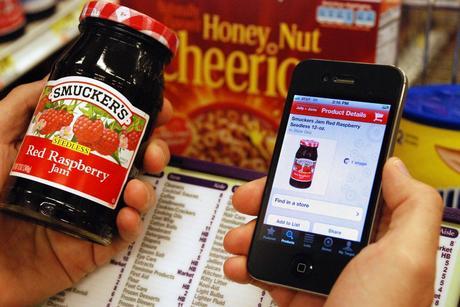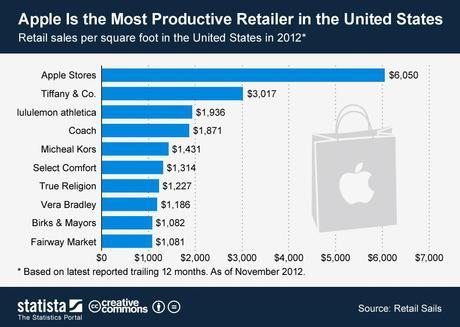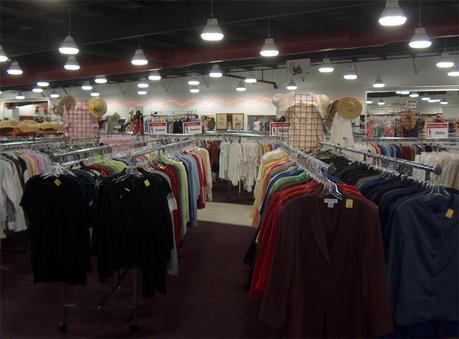To ensure high magnitude of success for almost any industry, it is important for the involved companies to thrive with persistent innovations and transformations; the same holds for consumer products and retail industry. However, like all the other industries, this one also continues to face severe challenges that need to deal with significantly. Notably, the role of enterprise mobility is effectual in this context as it takes care of the hassles in this domain and heralds positive outcomes.

Source: adlittle
Retail and Consumer products industry
Abiding by the lexicon, the term retail refers to the sale of goods or commodities in small quantities directly to consumers. Likewise, consumer products are the goods that are consumed in entirety instead of being leveraged as a raw material for the production of other goods. Together, the retail and consumer products industry makes up for a bulk of revenue, leading to a proliferating global economy. Additionally, the industry also performs well at the equity market, opens the avenues for steady employment and drives considerable consumer cash flow.
The challenges
While it promises a whole lot of pluses, the retail and consumer goods industry is also compelled to look for improvements in the wake of:
- Competitive marketplace of the modern times
- Change in consumer behavior
- Introduction of modern technologies
- Increasing buying power the world over
- Dearth of apt resources to meet consumer expectations
- Spreading awareness about consumer products
Fortunately, enterprise mobility has emerged as a feasible solution to all such challenges. The phenomenon has proved to be an effectual boon both for the businesses as well as consumers and is expected to churn even more benefits for all and sundry in the coming times.
Enterprise mobility in retail and consumer goods industry

source: hardnsoft
Mobility has helped companies in retail as well as consumer industries to capitalize on their erstwhile CRM investments, leading to one-to-one interaction between the company and business partners, seller and the shopper, and so on.
Among the major advantages it has bestowed on this specific business domain include:
- Real-time supply chain to enable businesses respond instantly to abrupt demands swings.
- Resourceful shelf-space utilization by field associates through apt mobile planogram.
- Transformation of distribution and warehousing functions resulting in increased productivity and operational efficiency.
- Positive response of retailers in the form of fine-tuned mobile commerce channel strategies.
- Heavy use of mobile browsers and applications by retailers to update the consumer on their offerings.
- Effective mobile devices and apps for product research & comparison by value-driven consumers.
Survey reports
The significant contribution of enterprise mobility in retail and consumer goods industry is evident. The same is heralded by a thick of survey reports as well, conducted worldwide at regular intervals. Let’s check out few of them:

Source: statista
- In a report revealed by Cognizant, mobile commerce is expected to produce exceptional retail revenues, good enough to influence store sales between 17% – 21% by 2016. Widespread use of smartphone and tablets across the globe is cited as one of the major reasons behind this surge.
- Another report by Retail Sails highlights the most productive retailers in the US in 2012 where not surprisingly Apple retail stores is found to have generated the maximum sales per square foot. Others to follow include tiffany & Co., Coach, and so on.
- In a 2012 Neilson report, the findings reveal a sizable 15+% increase in the sales from convenience stores between 2010 and 2011. Hypermarkets were among the other major gainers in the survey report.
Examples
Some of the prominent examples associated with varied marketplace would be great to see how the enterprise mobility world has resulted in a settle overhaul of the consumer goods and retail industry.
Medicine
Pharmaceutical companies can leverage mobility to win more potential consumers by linking important drug related information to subsequent transactions. For example, a person buying a medicine can receive alerts for prescription drug refill, side-effects for overdose, the effect of medicine when taken with over the counter (OTC) drug, etc,. right on their mobile phones.

Source: slfixtures
Specialty retail
Specialty retailers refer to the companies that are involved in the operation of retail stores of only a single merchandise. Examples include auto parts, office supplies, kitchenware, sporting equipment, and so on. Such specialty retailers keep pace with their up-to-date consumers so as to grasp their minds and to devise marketing strategy accordingly. Mobility facilities further help these retailers as they can communicate with the modern consumers through mobile devices to nibble on a range of important data pertaining to the consumer products, associated loyalty programs, feedbacks from the consumers on selected goods, etc. Notably, the next generation consumers prefer relying on their sophisticated mobile devices rather than on traditional shopping through brick and mortar shops; specialty retailers just strive to make the most of this opportunity.
Grocery
Most of the retail grocers help consumers prepare shopping list while on the move or while relaxing and enjoying a TV show. The shopper is provided with real-time pricing list of several items available in the store to shortlist one or more of those commodities for buying. Grocers may also provide the customers with electronic coupons based on the latter’s purchase history. Proper analysis of data generated with every such sort of interaction could help them understand consumer behavior, preferences, budget constraints, etc. This in turn helps retailers as well as their partners cope up with losses and ensure a foothold in the contemporary market.
In a nutshell, with enterprise mobility barging its way speedily to churn progressive outcomes for ambitious businesses, its contribution to the retail environment and consumer goods industry is also worthwhile. Though, like almost any other business domain this industry also faces numerous challenges, but owing to the advanced technology and intrusion of enterprise mobility, the threatening issues are dealt with satisfyingly. To summarize, the industry has been benefited heavily by the mobility trend as is being continuously revealed through certain survey reports and projections from renowned bodies. Considering its present state, it won’t be wrong to postulate a bright future for the retail and consumer products industry in the wake of growing demand for mobility.
Finoit can provide apt mobile development solutions to accommodate the intensifying demand for mobility in the sector of retail and consumer products. We are capable of developing mobile apps for varied platforms including Android, iOS, Windows Phone and more and extend our services to benefit multiple business verticals.
Should you also wish to develop a profitable mobile to simplify the tasks in your retail and consumer goods business, feel free to approach us at the earnest.
Microsoft Visual Studio Vs. Eclipse: Which IDE Do You Prefer For Web App Development?Siri vs. Google Now: Which One of the Two Wins the Tight Competition?